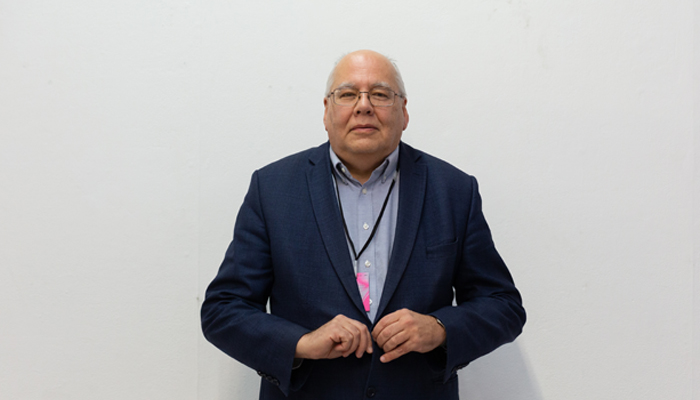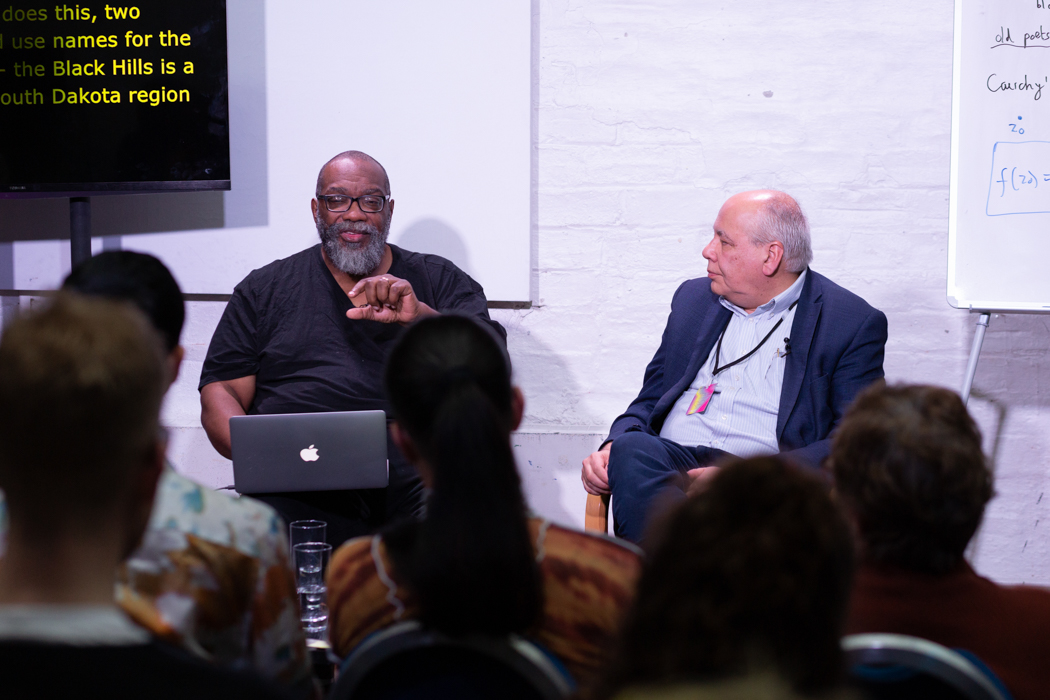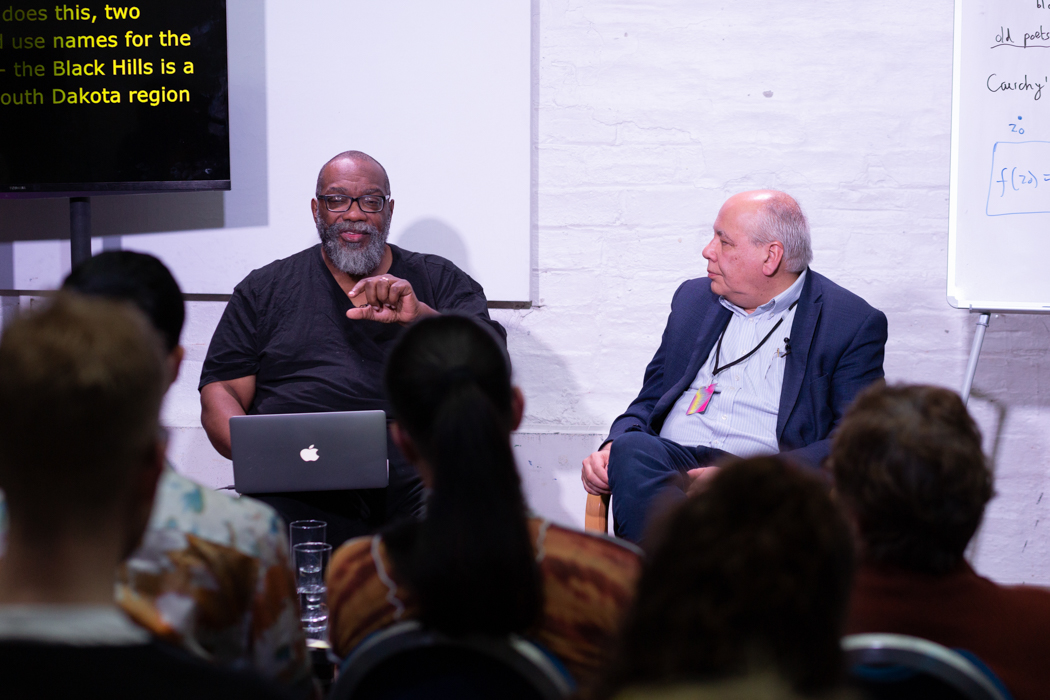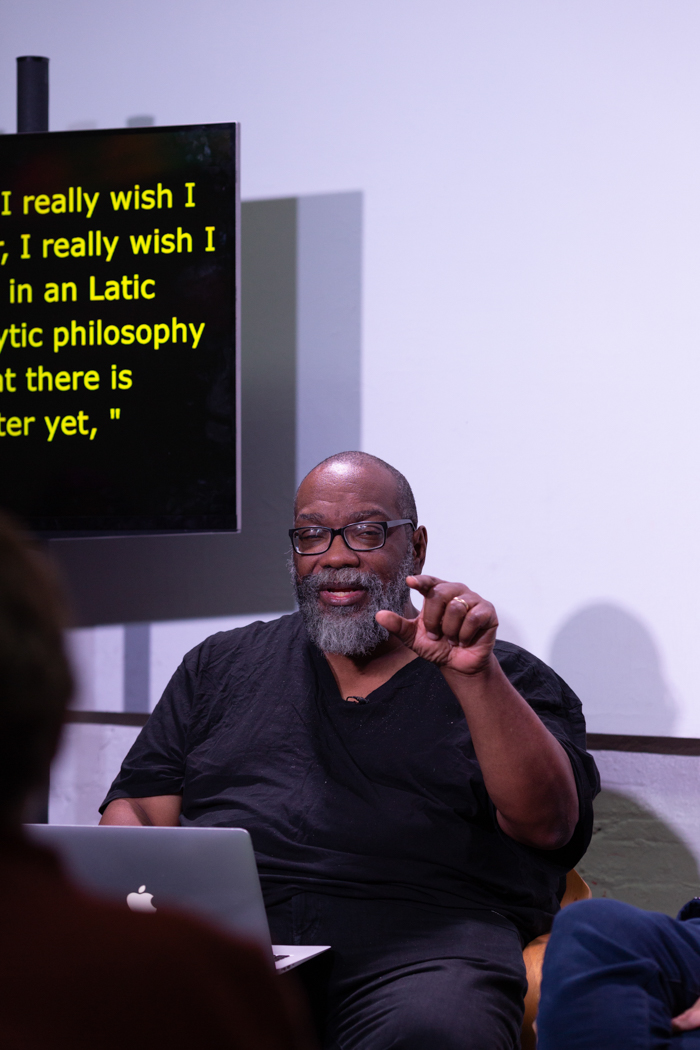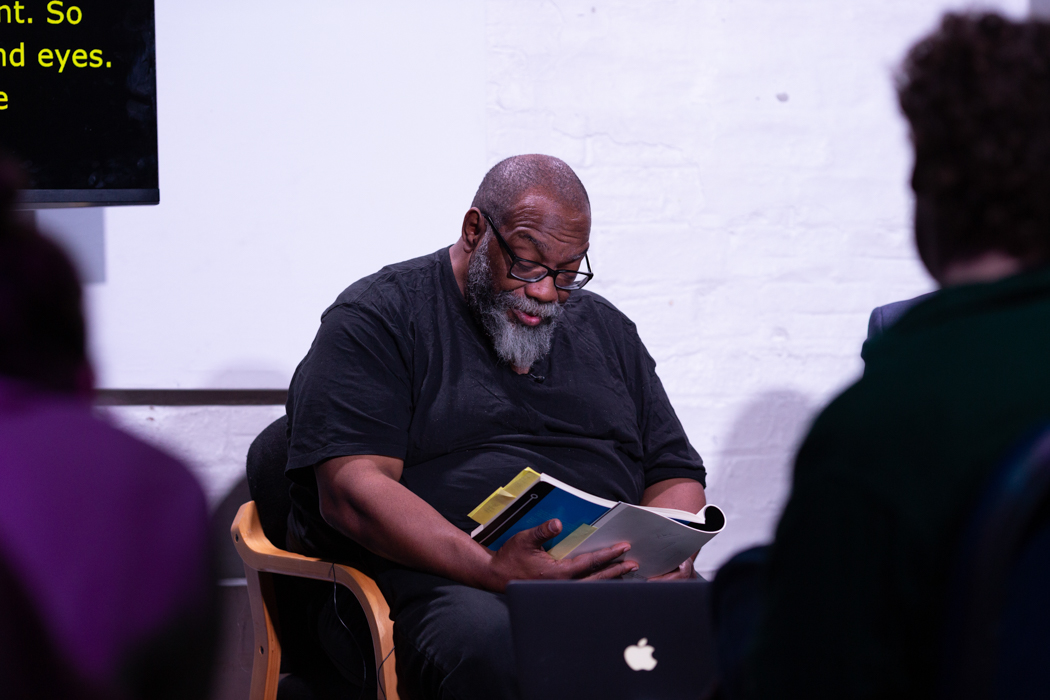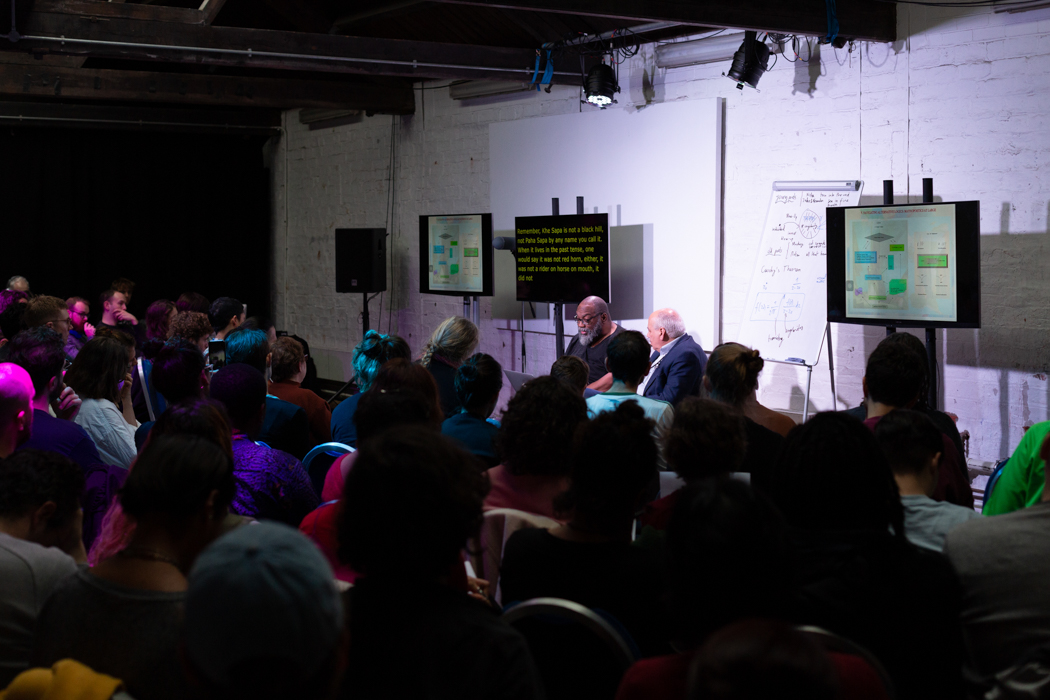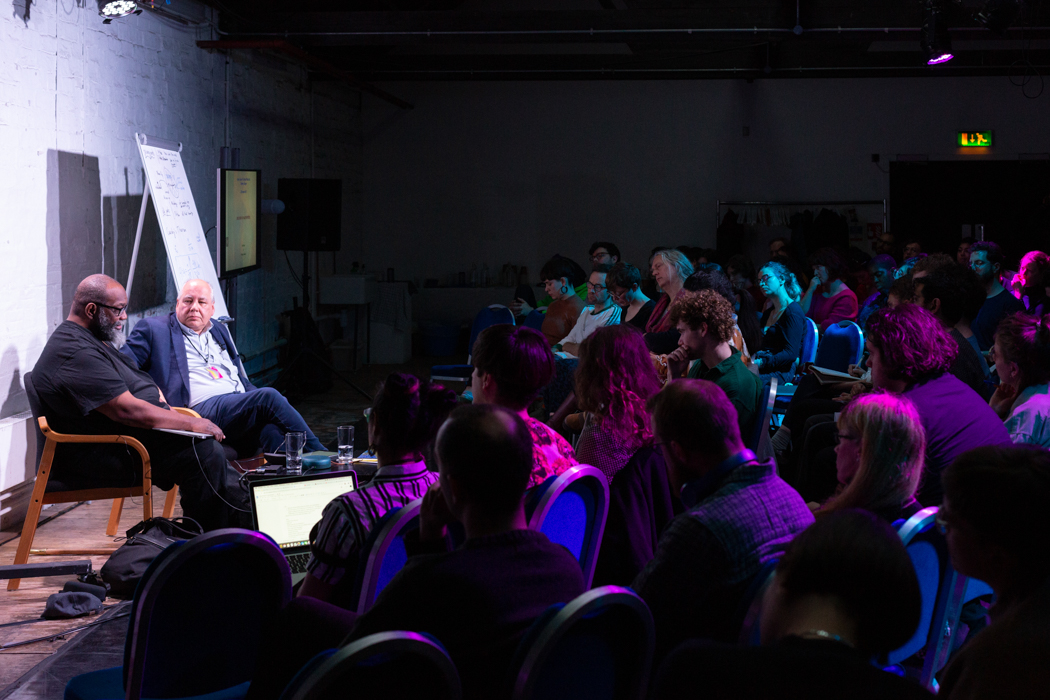Discussion on Mathopoetics
Discussion on Mathopoetics
A back and forth between Fred and Fernando on the transits and obstructions between mathematics and poetics, and how both help us to think from the other side.
When asked what it meant to be shipped, the great Martinican writer Edouard Glissant suggested it was “consent not to be a single being”. Moving beyond Glissant’s ‘poetics of relation,’ Fred’s writing proposes blackness as a mode of life that exceeds the limited, murderous notion of individuals, and so any relationship between them. Fernando is the great interpreter of the cultural implications of contemporary maths, charting its revolution away from fixed objects towards tools that can anchor differences and simultaneously construct synthetic visions.
Is a poetics of blur analogous to the mathematical integration of margins and borders? Can either or both move beyond the relational? And what might this mean for urgent political ideas such as consent, which rely on it?
“I am getting ready, right now, even as I type, to put on some old Elvis Costello because the phrase that keeps coming to my mind is, “every day we write the book.” That’s the poetics in which I am interested. And it is shared, non-private, improper: the ‘live’ recording of our studious practice, the constant preparation and (ground) provision of our undercommon defense. Now, what is the poetics of this every day practice? I think it’s a poetics that can’t be encompassed by the figure of the poet, the figure of the poem or the institution of poetry. It turns out to be inseparable from, though irreducible to, physics, math, and sociology, each of which exist in and as the blurring of theory and experiment, none of which exist as if separable, countable or political. We study the ‘place/meant’ of this general non-locality of how we think and feel, which is what we practice. Our practice is our study. We practice what we sing. We do what we do. We do that we do, all ungodly and shit. This statement can’t be any more plain than this because this chant can’t be any less plain than this.” – Fred Moten
ReadFernando Zalamea is a Colombian mathematician, philosopher, cultural critic and writer living in Bogotá, Columbia. He opens up the vast spectrum of modern and contemporary mathematics and the new philosophical possibilities they suggestto any of us who have ever read an epic novel, been moved by a piece of art, or wonder about the complexity of human understanding and social life. His thinking — as summarised in English in his book Synthetic Philosophy of Contemporary Mathematics (Urbanomic x Sequence Press 2012) — weaves together strands of the modern and postmodern, the rational and the romantic into a synthetic universality, endlessly revisable and updatable, and puts forward an idea of the trans and transmodernity as a term to encompass our unfolding epoch.
If you ask him, Fred Moten might say that what people often think of as his poetic and philosophical thinking and writing—about fugitivity, blackness, blur—isn’t his at all. It’s better conceived as a temporary and fleeting emanation of open-ended friendships within the black radical tradition; queer and indigenous worldviews; the music of blackness; and sites of care. Most often, these have included Stefano Harney, Laura Harris or Wu Tsang, but also hundreds of others.
Fred has participated in Episode 4: Freedom is a Constant Struggle and Episode 6: Make a Way Out of No Way as well as at Arika’s week of events, A survey is a process of listening, at the Whitney Biennial in 2012.
Study Session General Info
Study Sessions are informal, slightly more intimate spaces and a chance to geek out. Some might be presentations, some might be workshops; each will open out the ideas and themes in the Episode, led by people who’ve been considering them for ages. This one is about the interconnectedness of the maths of ruin, wreckage, community and paths, and the poetics as a gravitational field that is always in excess of itself, a machine for the folding and unfolding of limits into themselves.
Image Description: Fernando Zalamea and Fred Moten are sat next to one another facing towards an audience in a white room. Fred is talking directly to the audience and their hand is gestured in a “c” shape. Fernando is looking at Fred and listening intently.
Documentation
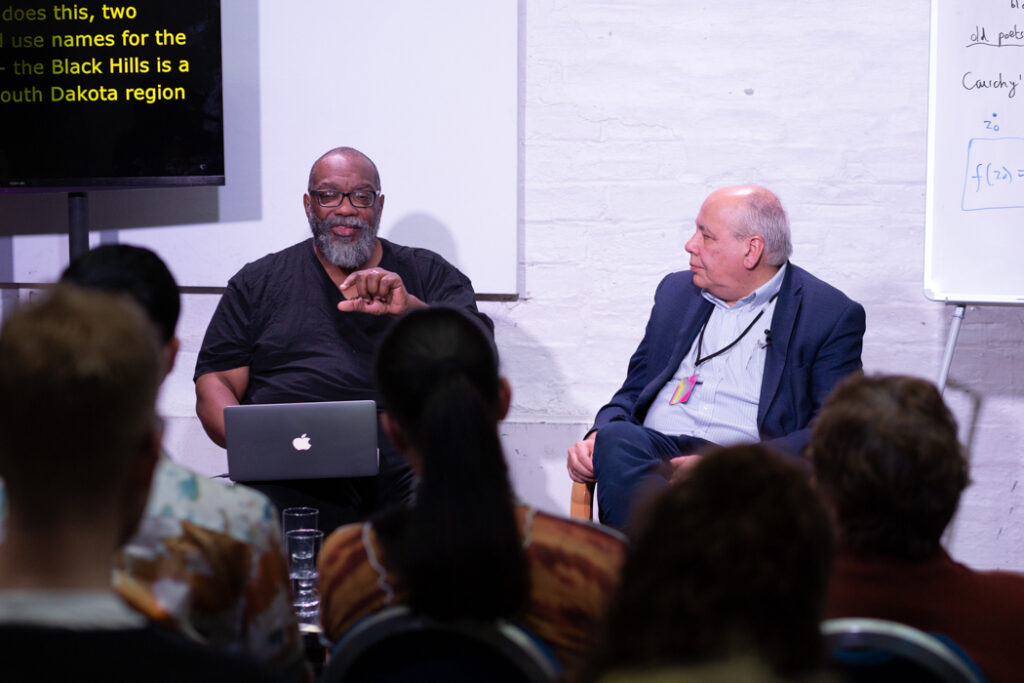
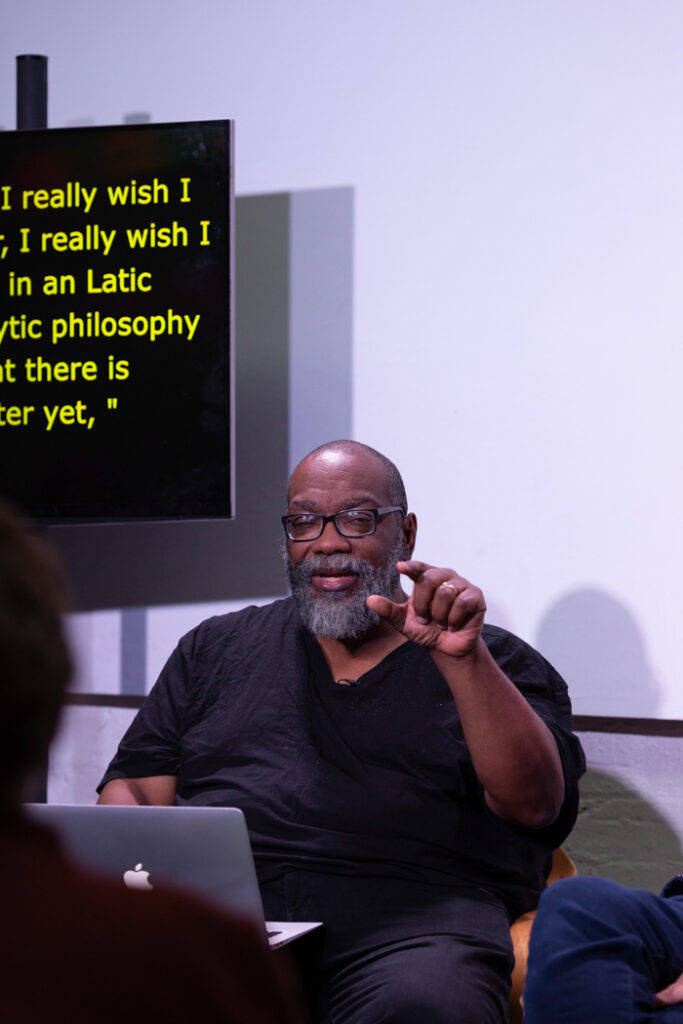
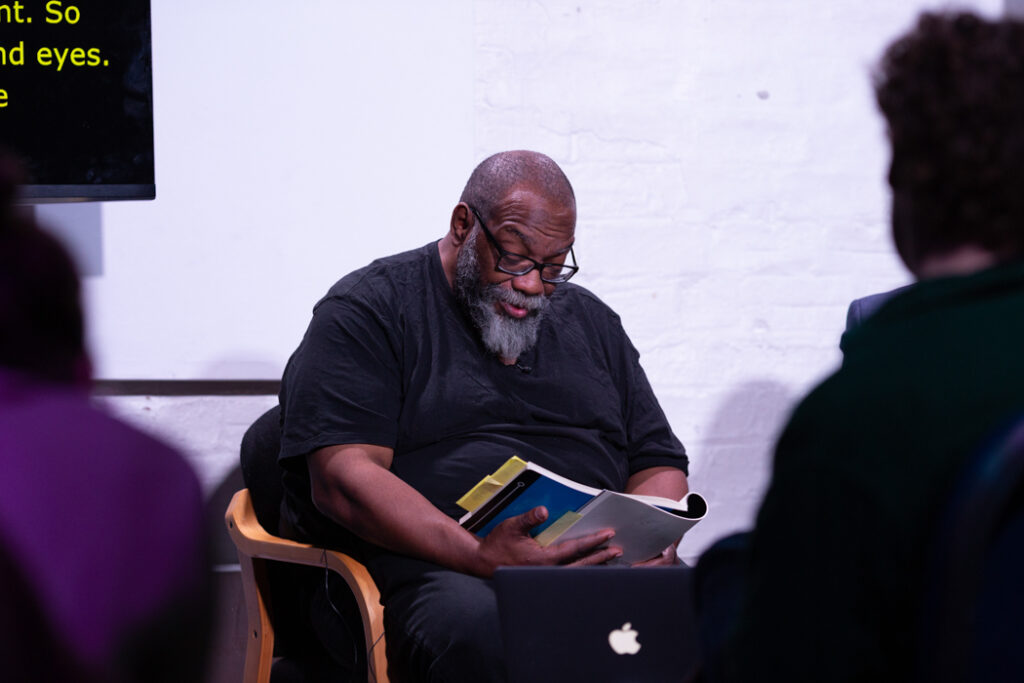
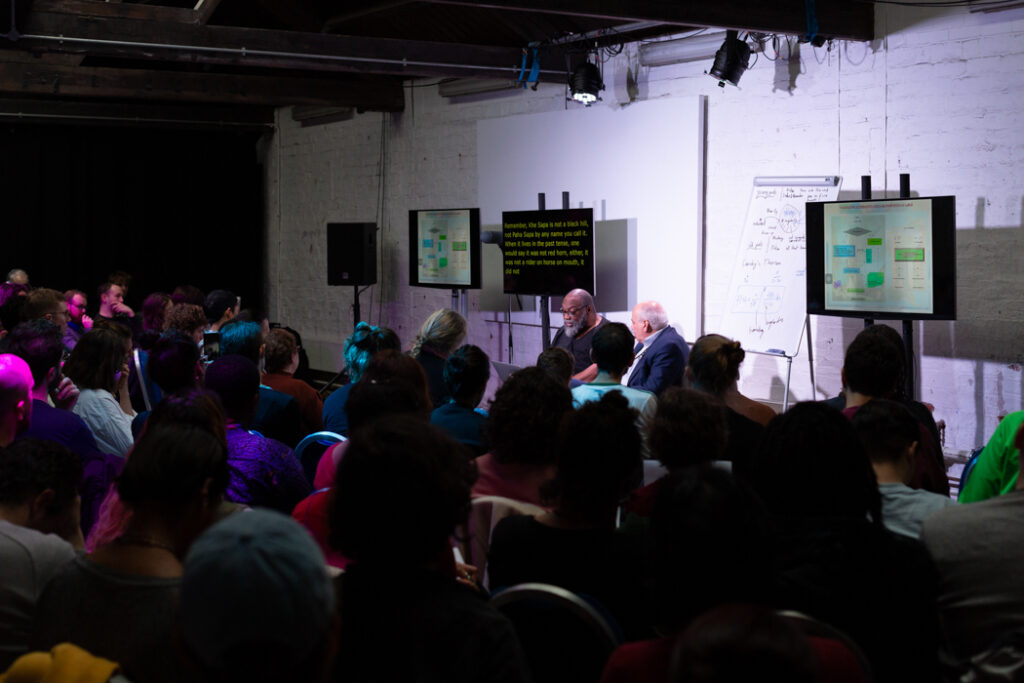
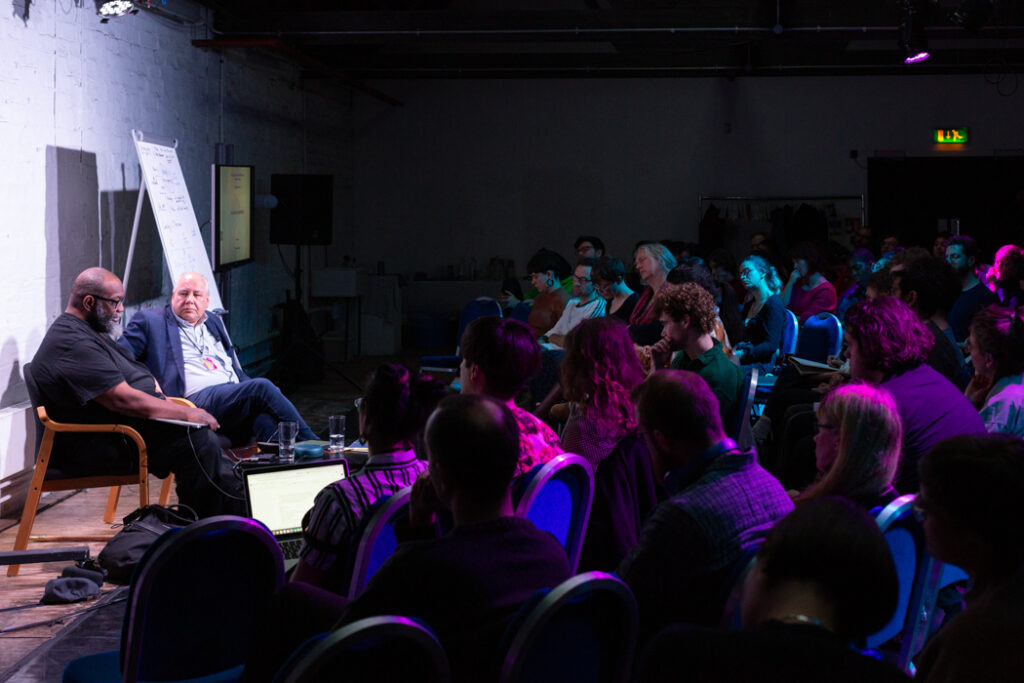
Artists

Fred Moten
